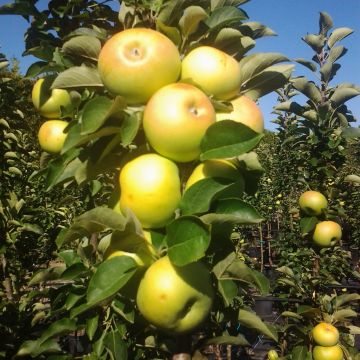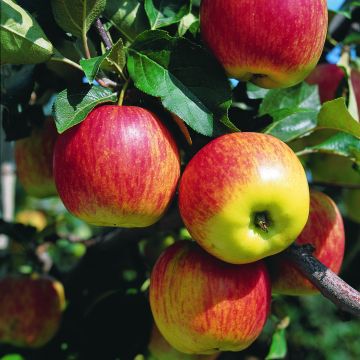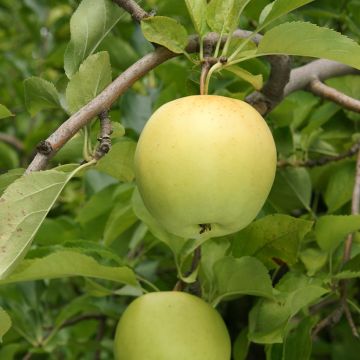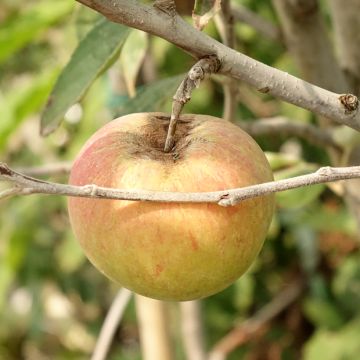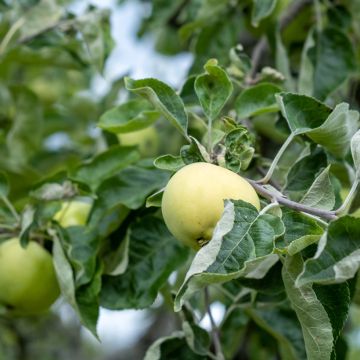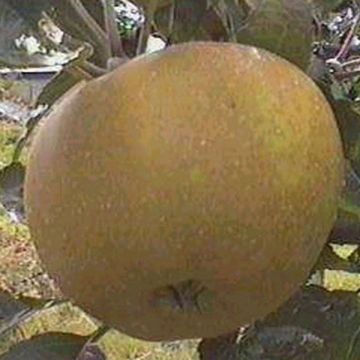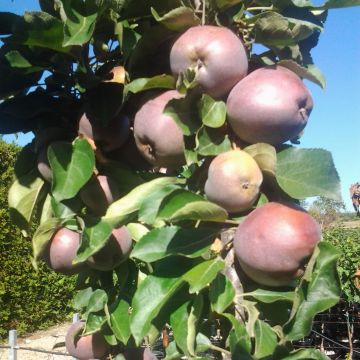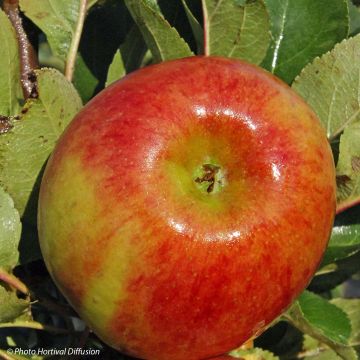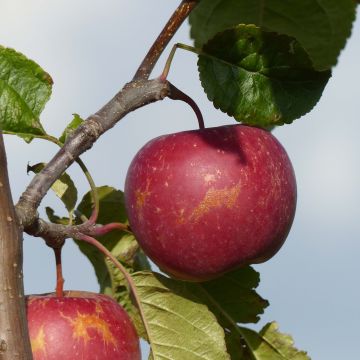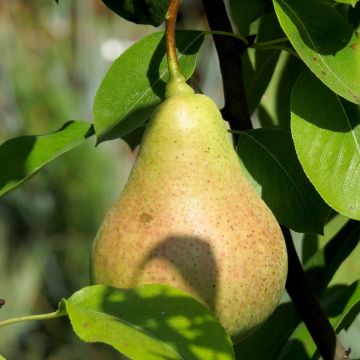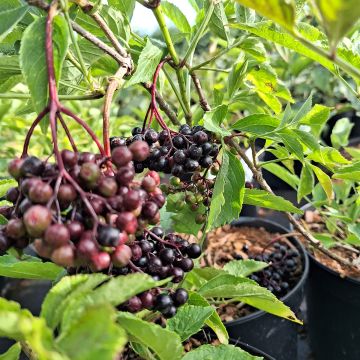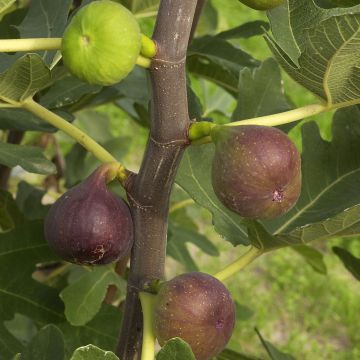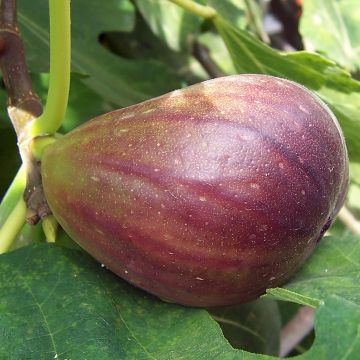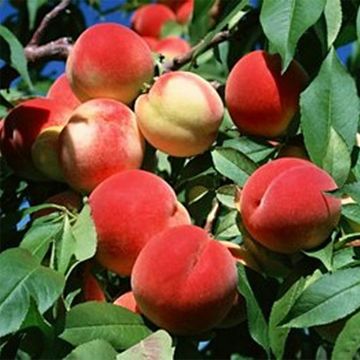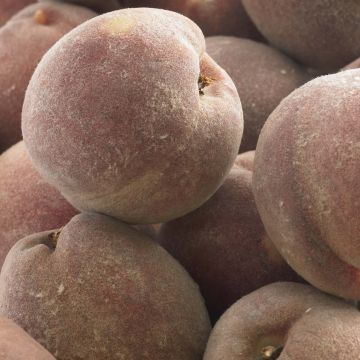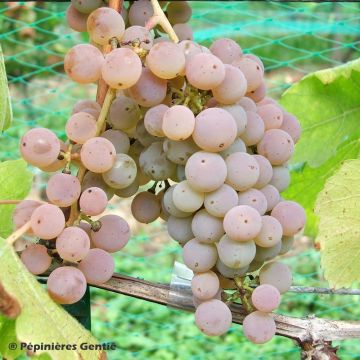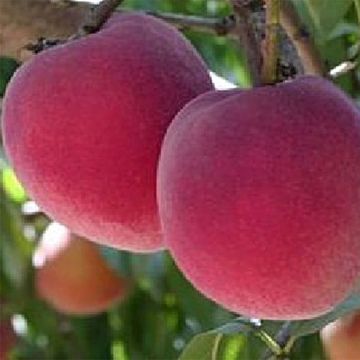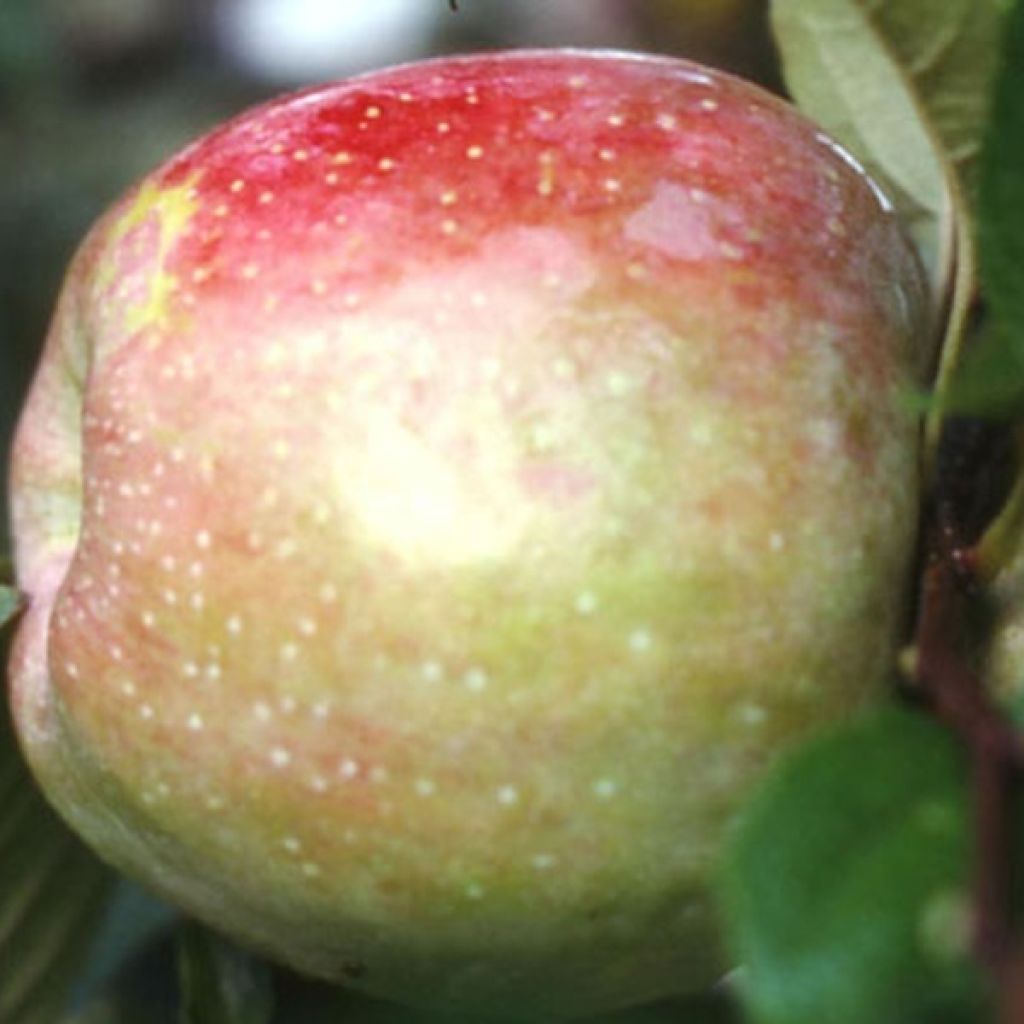

Apple Tree Belle de Boskoop - Malus domestica
Apple Tree Belle de Boskoop - Malus domestica
Malus domestica Belle de Boskoop
Apple, Orchard apple, Table apple, Cultivated apple
Received the apple tree in good condition. Well done on the quality of the packaging! Looking forward to next year's apples. Thank you.
Philippe , 11/10/2022
Special offer!
Receive a €20 voucher for any order over €90 (excluding delivery costs, credit notes, and plastic-free options)!
1- Add your favorite plants to your cart.
2- Once you have reached €90, confirm your order (you can even choose the delivery date!).
3- As soon as your order is shipped, you will receive an email containing your voucher code, valid for 3 months (90 days).
Your voucher is unique and can only be used once, for any order with a minimum value of €20, excluding delivery costs.
Can be combined with other current offers, non-divisible and non-refundable.
Home or relay delivery (depending on size and destination)
Schedule delivery date,
and select date in basket
This plant carries a 6 months recovery warranty
More information
We guarantee the quality of our plants for a full growing cycle, and will replace at our expense any plant that fails to recover under normal climatic and planting conditions.


Description
The Belle de Boskoop apple tree is a variety with good vigour and productivity. It produces large, round, irregular fruits that are light green to yellow with red spots. Their flesh is granular, semi-crisp, juicy, and tart. Harvest takes place in late October and November. They can be stored until March. The Belle de Boskoop apple tree is not self-fertile. It is resistant to canker, scab, and cold.
The apple tree is native to Europe, where its presence has been documented since antiquity. The Belle de Boskoop apple tree is a variety discovered in the Netherlands by J.K.W. Ottolander in 1856, in Boskoop. The Belle de Boskoop apple tree has a semi-spreading habit, giving it a tall trunk and a spreading appearance, naturally allowing for air circulation and providing some resistance to fungal diseases. It is quite productive, so thinning is necessary to avoid small fruit size and the onset of diseases. Its foliage consists of very large, ovate, slightly hairy leaves that are dark greenish-brown on top and whitish-green underneath, with deeply toothed edges. Its flowering, spectacular, lasts for 20 days in April. It is composed of large white flowers. The flowering is not susceptible to frost, so the apple tree is suitable for cultivation in mountainous regions. Being self-sterile, the presence of apple trees with overlapping flowering times is necessary. The varieties 'Golden', 'Starking Delicious', 'Reine des Reinettes', and 'Idared' are suitable. Fruiting is late, starting in late October and extending into November. The large, round fruits are irregular in shape and light green to yellow with red spots. Their flesh is granular, semi-crisp, juicy, and tart. These apples are particularly suitable for both eating fresh and cooking. They can, of course, be used in pastries, compotes, jams, and savoury dishes, including in combination with cheeses.
Report an error about the product description
Apple Tree Belle de Boskoop - Malus domestica in pictures
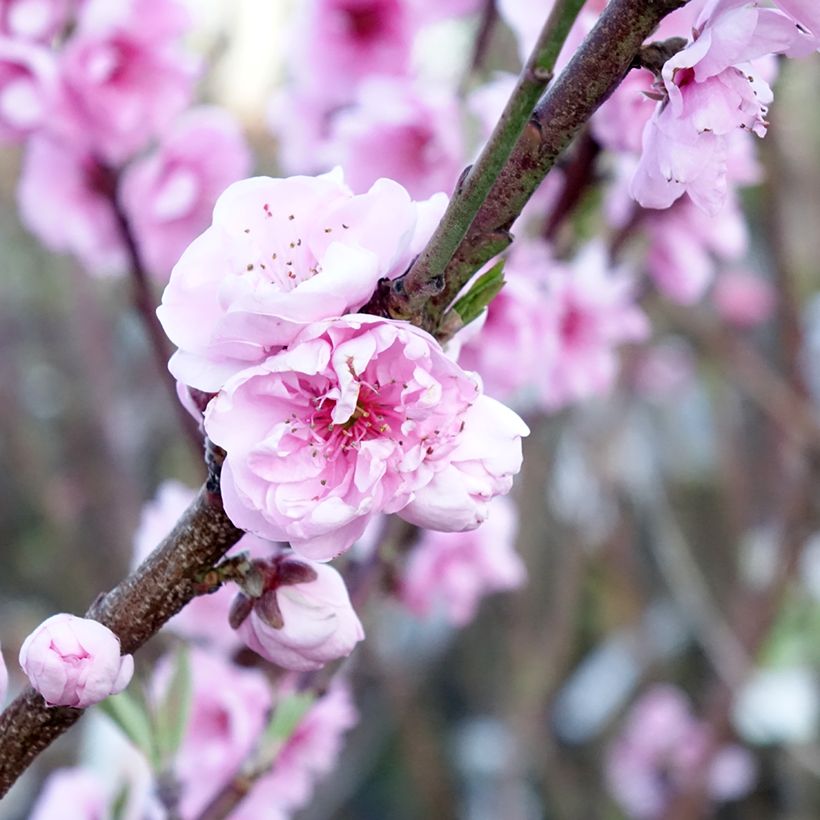

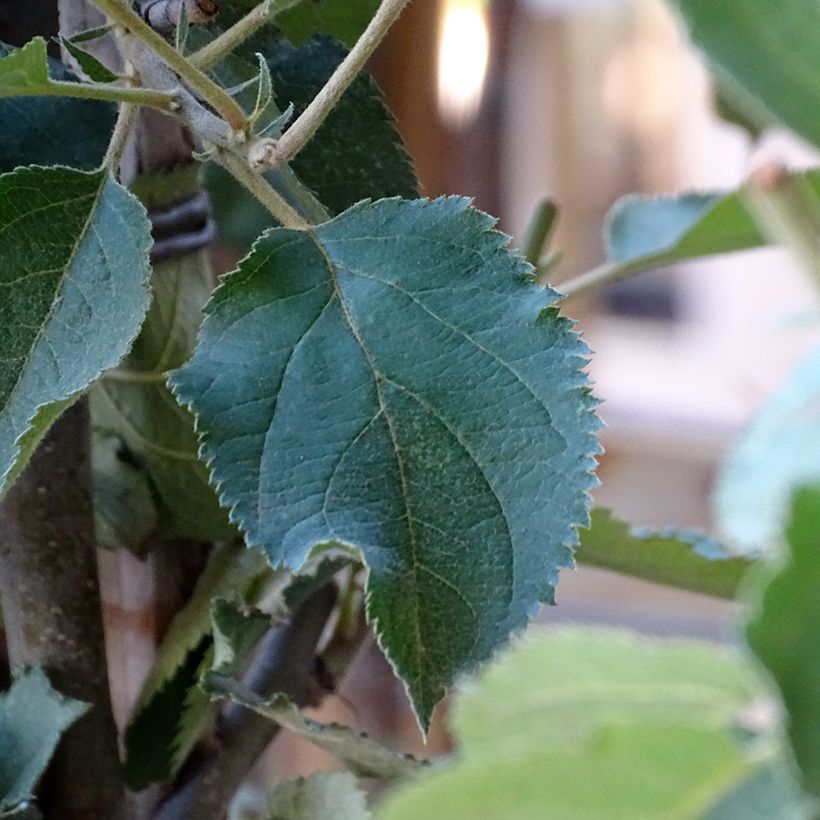

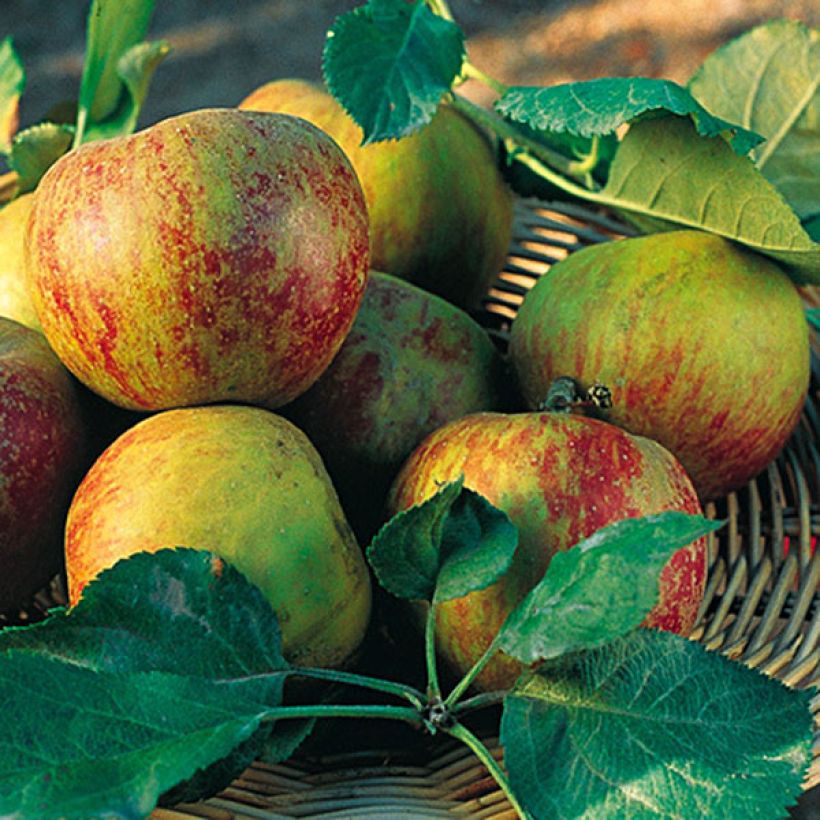

Plant habit
Fruit
Flowering
Foliage
Botanical data
Malus
domestica
Belle de Boskoop
Rosaceae
Apple, Orchard apple, Table apple, Cultivated apple
Cultivar or hybrid
Other Apple trees
View all →Planting and care
Choose a sunny location for your Belle de Boskoop Apple Tree. The soil can be slightly chalky or acidic, but not excessively so. Dig a wide planting hole at least 3 times the size of the root ball. Simultaneously add organic matter (topsoil, compost) and a base fertiliser such as crushed horn. Do not bury the graft point. Stake if necessary. Water abundantly, even in winter, and even if it is raining. Fruit trees are ideally planted between October and March, outside of the freezing period. Container-grown plants can be planted throughout the year, except during periods of high heat or frost. During winter, you can add a small handful of wood ash, which is rich in potash, to improve fruiting. Watch out for possible aphid attacks during the season. Powdery mildew, a white fungal growth, may appear on the leaves in summer, but it does not harm fruit development in gardens. Harvest takes place in September. Only keep the picked fruits. Apples should be stored with the stem downwards, on shelves or in crates. Preferably choose a completely dark, dry and cool location, but frost-free.
Planting period
Intended location
Care
-
, onOrder confirmed
Reply from on Promesse de fleurs
Similar products
Haven't found what you were looking for?
Hardiness is the lowest winter temperature a plant can endure without suffering serious damage or even dying. However, hardiness is affected by location (a sheltered area, such as a patio), protection (winter cover) and soil type (hardiness is improved by well-drained soil).

Photo Sharing Terms & Conditions
In order to encourage gardeners to interact and share their experiences, Promesse de fleurs offers various media enabling content to be uploaded onto its Site - in particular via the ‘Photo sharing’ module.
The User agrees to refrain from:
- Posting any content that is illegal, prejudicial, insulting, racist, inciteful to hatred, revisionist, contrary to public decency, that infringes on privacy or on the privacy rights of third parties, in particular the publicity rights of persons and goods, intellectual property rights, or the right to privacy.
- Submitting content on behalf of a third party;
- Impersonate the identity of a third party and/or publish any personal information about a third party;
In general, the User undertakes to refrain from any unethical behaviour.
All Content (in particular text, comments, files, images, photos, videos, creative works, etc.), which may be subject to property or intellectual property rights, image or other private rights, shall remain the property of the User, subject to the limited rights granted by the terms of the licence granted by Promesse de fleurs as stated below. Users are at liberty to publish or not to publish such Content on the Site, notably via the ‘Photo Sharing’ facility, and accept that this Content shall be made public and freely accessible, notably on the Internet.
Users further acknowledge, undertake to have ,and guarantee that they hold all necessary rights and permissions to publish such material on the Site, in particular with regard to the legislation in force pertaining to any privacy, property, intellectual property, image, or contractual rights, or rights of any other nature. By publishing such Content on the Site, Users acknowledge accepting full liability as publishers of the Content within the meaning of the law, and grant Promesse de fleurs, free of charge, an inclusive, worldwide licence for the said Content for the entire duration of its publication, including all reproduction, representation, up/downloading, displaying, performing, transmission, and storage rights.
Users also grant permission for their name to be linked to the Content and accept that this link may not always be made available.
By engaging in posting material, Users consent to their Content becoming automatically accessible on the Internet, in particular on other sites and/or blogs and/or web pages of the Promesse de fleurs site, including in particular social pages and the Promesse de fleurs catalogue.
Users may secure the removal of entrusted content free of charge by issuing a simple request via our contact form.
The flowering period indicated on our website applies to countries and regions located in USDA zone 8 (France, the United Kingdom, Ireland, the Netherlands, etc.)
It will vary according to where you live:
- In zones 9 to 10 (Italy, Spain, Greece, etc.), flowering will occur about 2 to 4 weeks earlier.
- In zones 6 to 7 (Germany, Poland, Slovenia, and lower mountainous regions), flowering will be delayed by 2 to 3 weeks.
- In zone 5 (Central Europe, Scandinavia), blooming will be delayed by 3 to 5 weeks.
In temperate climates, pruning of spring-flowering shrubs (forsythia, spireas, etc.) should be done just after flowering.
Pruning of summer-flowering shrubs (Indian Lilac, Perovskia, etc.) can be done in winter or spring.
In cold regions as well as with frost-sensitive plants, avoid pruning too early when severe frosts may still occur.
The planting period indicated on our website applies to countries and regions located in USDA zone 8 (France, United Kingdom, Ireland, Netherlands).
It will vary according to where you live:
- In Mediterranean zones (Marseille, Madrid, Milan, etc.), autumn and winter are the best planting periods.
- In continental zones (Strasbourg, Munich, Vienna, etc.), delay planting by 2 to 3 weeks in spring and bring it forward by 2 to 4 weeks in autumn.
- In mountainous regions (the Alps, Pyrenees, Carpathians, etc.), it is best to plant in late spring (May-June) or late summer (August-September).
The harvesting period indicated on our website applies to countries and regions in USDA zone 8 (France, England, Ireland, the Netherlands).
In colder areas (Scandinavia, Poland, Austria...) fruit and vegetable harvests are likely to be delayed by 3-4 weeks.
In warmer areas (Italy, Spain, Greece, etc.), harvesting will probably take place earlier, depending on weather conditions.
The sowing periods indicated on our website apply to countries and regions within USDA Zone 8 (France, UK, Ireland, Netherlands).
In colder areas (Scandinavia, Poland, Austria...), delay any outdoor sowing by 3-4 weeks, or sow under glass.
In warmer climes (Italy, Spain, Greece, etc.), bring outdoor sowing forward by a few weeks.






























